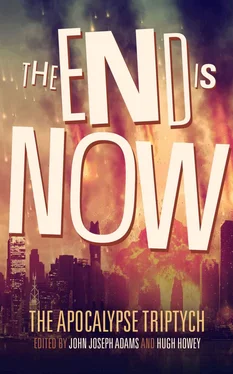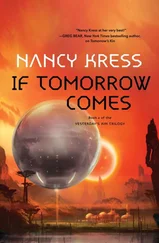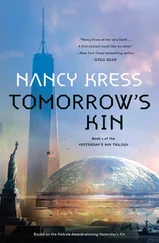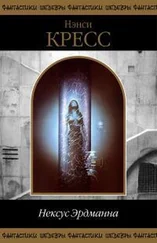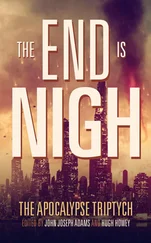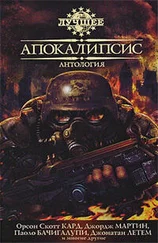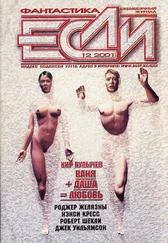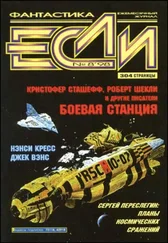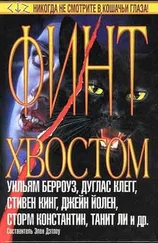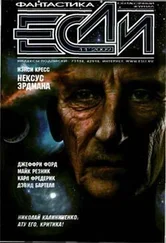As I climbed out of the Hummer on the “village green”—these stupidly archaic terms nauseated me, suggesting that any minute now we’d have a Maypole dance—I could hear the attackers. They were in the community hall, the first structure any group of Sweets built, happily wrecking things. People shouting, glass shattering, wood smashing. No gunfire, but that didn’t mean they weren’t armed. No cops, because even if someone at the settlement called them, they didn’t always respond. The police chief said the department was short-handed (true); the ACLU said that cops discriminate against Sweets (also true). Like God, the boys in blue mostly helped those who helped themselves.
“I’ll check it out,” I told Ian, who got behind the Hummer to cover me. As I approached the window, a bench came hurtling through it.
Inside were only four of them, three men and a woman, all of course late thirties or older. At least fifteen Sweets huddled at the far end of the room, including four children. The adults could’ve jumped the attackers while the fuckers were picking up furniture to smash, their sidearms holstered, but the Sweets didn’t move. They stood frozen, only their eyes darting around the room.
Cowards.
Extreme Involuntary Fear Bradycardia.
Both terms came to mind, and I pushed them aside. “Hey!” I yelled, and fired a shot into the air. The attackers pivoted to face me.
They were a scruffy lot, dirty and maybe drunk. Only one drew his weapon—were the other guns even loaded?—and I snapped, “Don’t try it.” Ian appeared behind me with his AK-47, which was laughable overkill. I said to one of the Sweets, “Was anybody hurt?” and, with great effort, he shook his head.
“Get out of here,” I told the scumbags. “And if anybody in this settlement has been hurt today, or if any of you ever come back here, I swear I’ll hunt you down, each and every one of you. Captain Zap there has your pictures on his cell and we can find out where you live. Do I make myself clear? Do I ?”
One by one, they nodded. The only guy with a drawn weapon tried to scowl at me, but I locked my eyes onto his and he lowered both his gaze and his gun. A minute later, they’d all gone.
Slowly the Sweets began to unfreeze, and the adults knelt to comfort their children. Carrie wasn’t there, but I hadn’t expected her to be: If she had been able to call our mother, she hadn’t been confronted directly by an attacker.
Ian, ever the researcher, asked permission to take blood samples. Everyone said yes. Blood tests were the price they paid for people like Ian and me doing for them what they would not do for themselves. Sweets understood that. They were cowardly, but not stupid.
I went to find my sister.
* * *
It started with the volcano. When that mountain blew up in Indonesia, the ash contained a weird compound that affected developing fetuses (and still does). The stuff was as eternal as the dormant genes it activated. Twenty-five years later, researchers like Ian were still trying to catalogue all the effects those few genes have on the half-million miles of nerve fibers in the human brain, not to mention the rest of the body. The short list:
• Cooperative, altruistic personality traits.
• Extreme involuntary fear bradycardia—a parasympathetic nervous system response to violence. Heart rate drops, oxygenation lowers, muscles stiffen, the amygdala-periaqueductal gray pathways are disrupted. There may be sweating. There may be fainting. There may be death.
• Heightened nurturing, due to increased oxytocin.
The kicker was that all these states were normal, within limits. Sweets pushed the limits. They were epigenetically altered from the ground up, fashioned by their DNA into much nicer people than the rest of us. Too nice to destroy each other, to destroy us, to destroy animals (they are of course vegetarian), to destroy the environment. They were just fucking angels.
But weren’t people more than their biology? Every day human beings resisted in-built biological urges in favor of cultural ones like monogamy. Or saving people in burning buildings. Or not killing the asshole who snatches your purse.
And the big, gazillion-dollar question is: why were the Sweets this way? There were a hundred theories drifting around the Internet. Yahweh, bringing about the End Times. Sheer Darwinian chance. The Earth, Gaia-like, fighting back to protect itself from polluters and frackers and over-fishers and those of us who own plastic water bottles. Or—
On the pathway through the settlement, I glanced up at the blue April sky.
But of course there was nothing to see. The alien ship was in orbit between Earth and Mars, too far away for anything dangerous from Earth to reach it.
* * *
“They took copper,” Carrie said. “Stripped out wiring and pipes. I guess they needed it for themselves.”
“So that makes it okay?”
“Of course not, Sophie.”
My sister had the sort of mild face a Sweet should have, a face from another century: calm eyes, pale oval face, fair hair in frizzy ringlets. Put a ruff and a stomacher on her and she would look like one of those obedient ladies in some patriarchal seventeenth-century court. As always, since we were children, she brought out the bully in me.
“How far along are you?”
Carrie blinked. “Mama told you?”
“Of course Mom told me. Why else would I be here? You have the right to get shot by some looting asshole if you want, but you don’t have the right to get my niece or nephew killed because you won’t defend yourself.”
“I don’t think—”
“Already obvious. You’re coming back with Ian and me.”
“No.” An actual shudder ran over her entire thin body, as if the mere thought of living with us was a toxin. “Sophie, I can’t.”
“You mean you won’t.”
“I won’t.”
“All right, in that case, I’m not doing this anymore. Do you hear me? Baby or no, this is the last time we’re risking our lives for people who won’t do anything to help themselves. But before I go, let me ask you something: Why won’t you come with me?”
And then Carrie said the stupidest, most wimpy thing I’d ever heard her say during a lifetime of stupid, wimpy things. She said, “This is the only place I feel safe.”
In anger, in resentment, in contempt, I turned my back on her and walked out.
* * *
The first clear picture of the alien ship flashed onto the wallscreen, caught by a Chinese unmanned spacecraft, the Hope of Heaven, on its long exploratory voyage to the Oort Cloud. The alien ship, a long tapered cylinder of some grayish metal, had three weirdly-shaped projections at seemingly random places on one side of the hull. The magnified image revealed zero about the craft’s occupants. Remotely controlled signals, sent in a variety of forms and in a variety of wavelengths, went unanswered. The aliens were not interested in prime numbers, Fibonacci sequences, or pi.
“Fuckers,” I muttered. Ian and I sat on the sofa in our pajamas, eating pizza. Our apartment on the fortified APBRI compound was small and hastily constructed, but safe. Nobody was going to take our copper wiring. We had a tiny bedroom and a great room not much larger, furnished with a second-hand sofa of a particularly hideous plaid, a table and wobbly chairs, and a very good multipurpose screen. Researchers knew what mattered. I’d made the pizza since pizza chains were few and no longer delivered: too dangerous. The crusts were burned.
Ian, to my surprise, put down his plate and reached for my hand. He is not usually a demonstrative man. “Sophie . . . you have to stop being so angry.”
Читать дальше
